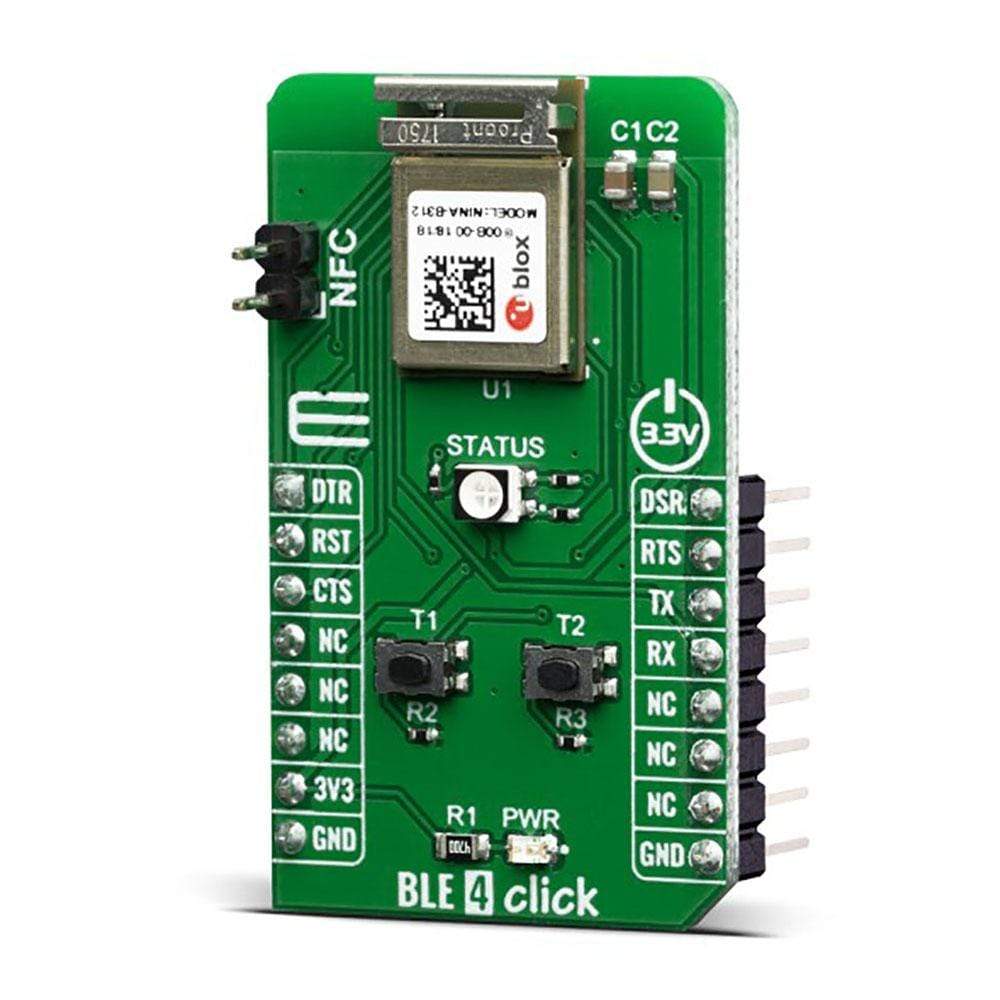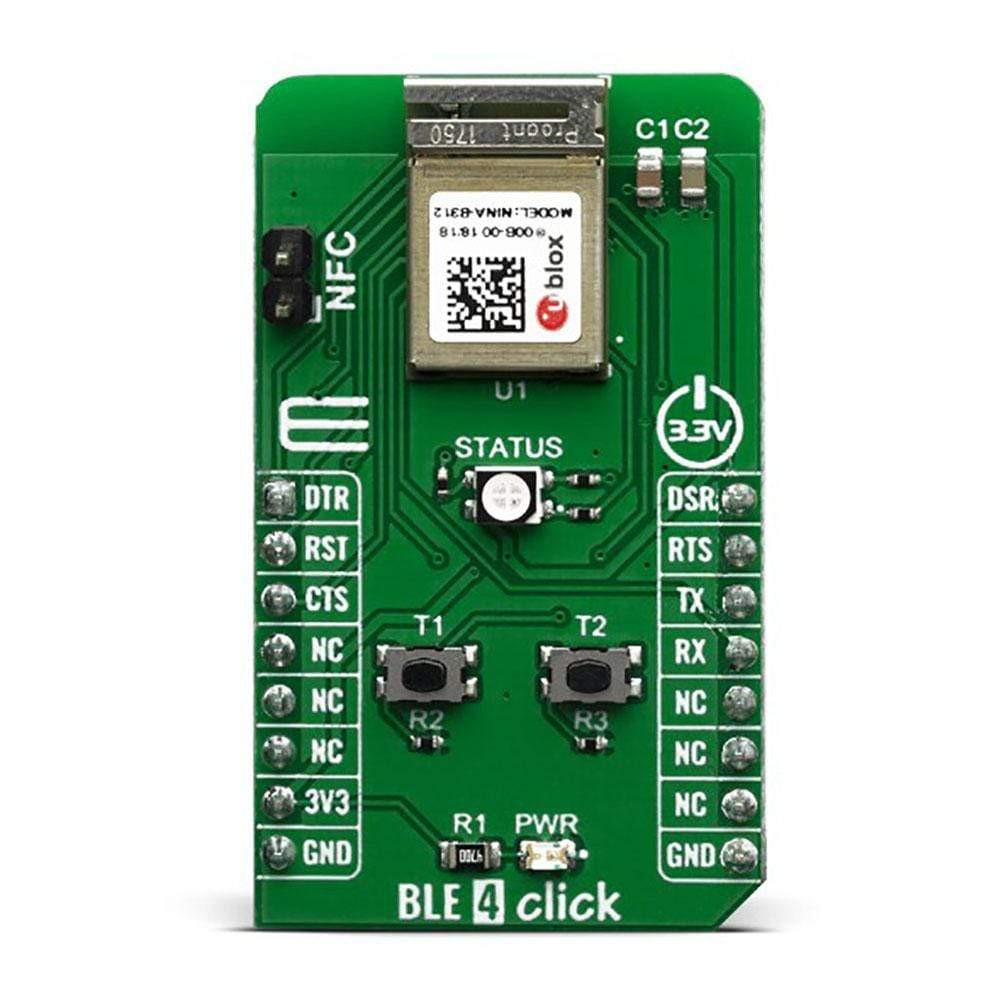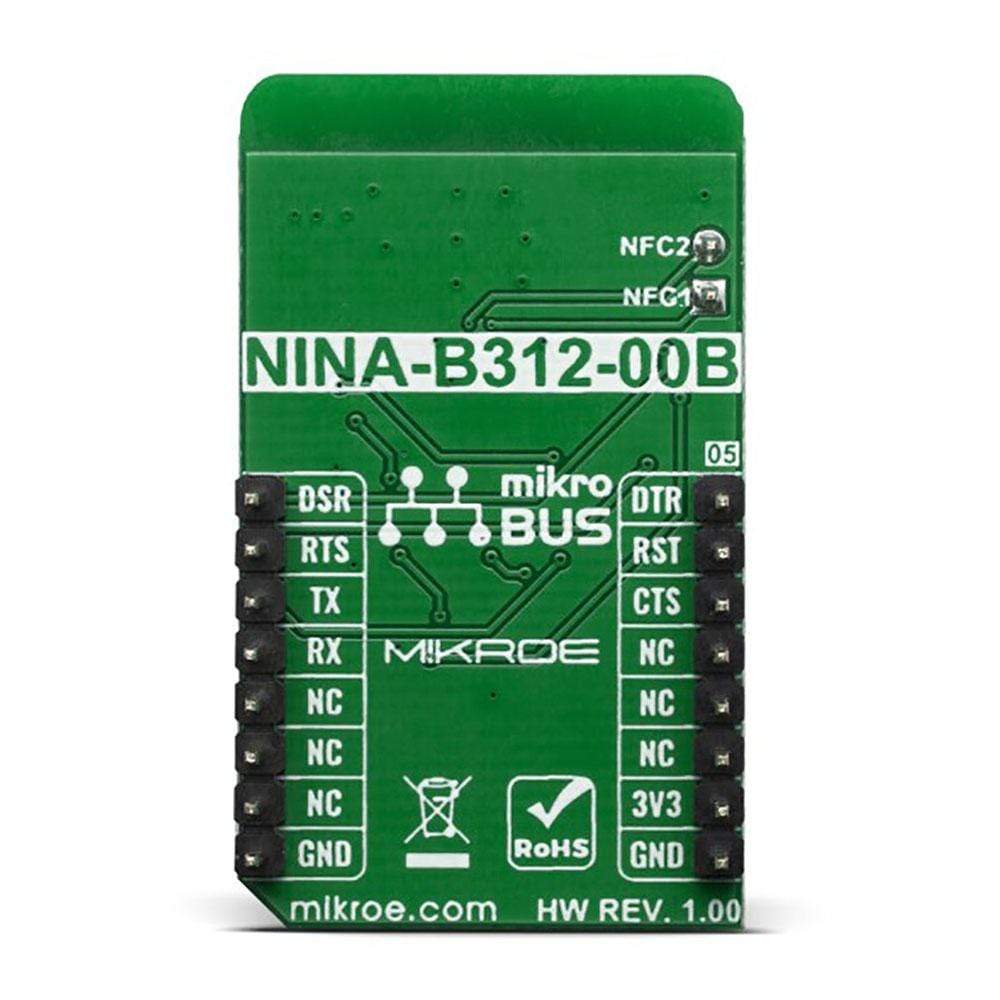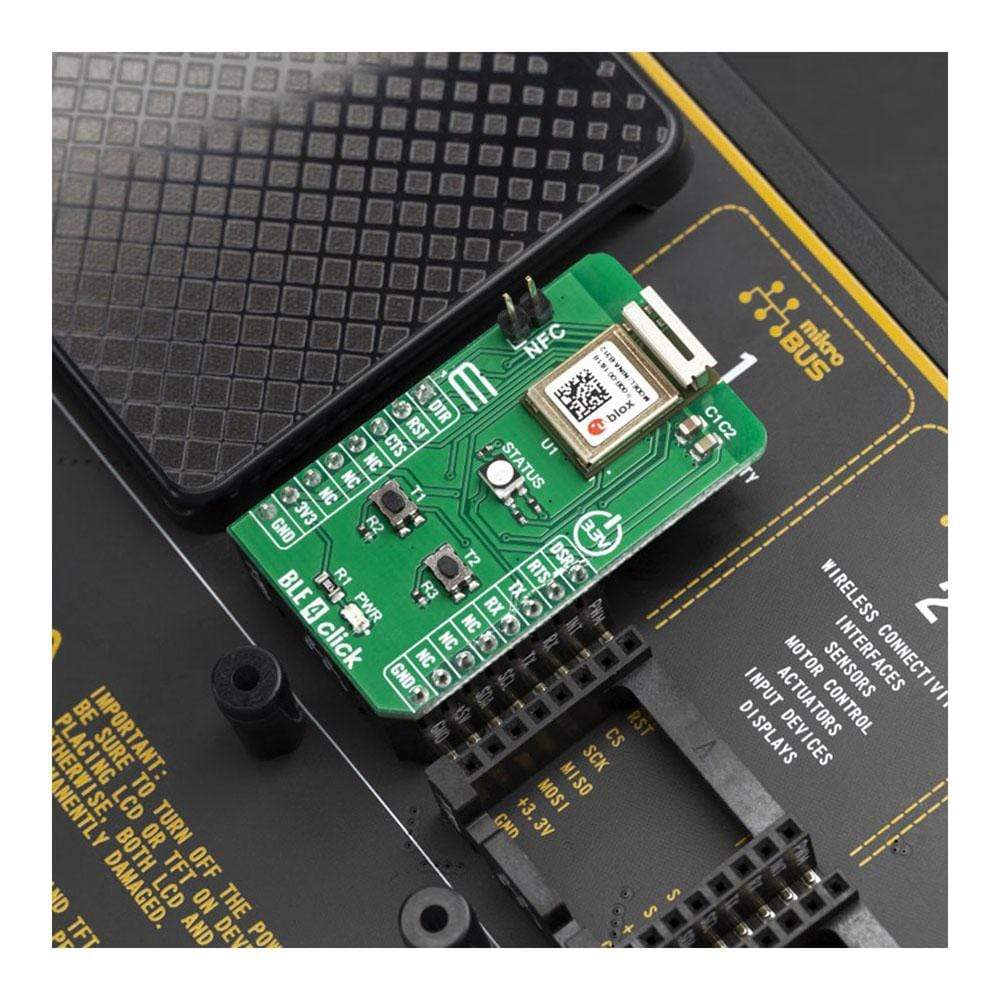



Overview
The BLE 4 Click Board™ is a fully embedded stand-alone Bluetooth 5.0 low energy connectivity module, equipped with the NINA-B312, an ultra-small, high-performing, standalone Bluetooth low energy module for easy integration of Bluetooth low energy connectivity (BLE) into various electronic devices. This module combines a high-performance Arm® Cortex®-M4 CPU microprocessor with FPU and state-of-the-art power performance. Reliable and easy to use, the BLE 4 Click Board™ is a perfect solution for the development of various IoT applications, smart home applications, BLE enabled toys, advanced robotics, and other similar applications.
The BLE 4 Click Board™ is supported by a mikroSDK compliant library, which includes functions that simplify software development. This Click Board™ comes as a fully tested product, ready to be used on a system equipped with the mikroBUS™ socket.
Downloads
Le BLE 4 Click Board™ est un module de connectivité Bluetooth 5.0 à faible consommation d'énergie entièrement intégré et autonome, équipé du NINA-B312, un module Bluetooth à faible consommation d'énergie ultra-petit et très performant pour une intégration facile de la connectivité Bluetooth à faible consommation d'énergie (BLE) dans divers appareils électroniques. Ce module combine un microprocesseur CPU Arm® Cortex®-M4 hautes performances avec FPU et des performances énergétiques de pointe. Fiable et facile à utiliser, le BLE 4 Click Board™ est une solution parfaite pour le développement de diverses applications IoT, applications de maison intelligente, jouets compatibles BLE, robotique avancée et autres applications similaires.
La carte BLE 4 Click Board™ est pris en charge par une bibliothèque compatible mikroSDK, qui comprend des fonctions qui simplifient le développement logiciel. Cette Click Board™ est un produit entièrement testé, prêt à être utilisé sur un système équipé du socket mikroBUS™.
| General Information | |
|---|---|
Part Number (SKU) |
MIKROE-3773
|
Manufacturer |
|
| Physical and Mechanical | |
Weight |
0.018 kg
|
| Other | |
Country of Origin |
|
HS Code Customs Tariff code
|
|
EAN |
8606018717064
|
Warranty |
|
Frequently Asked Questions
Have a Question?
Be the first to ask a question about this.




